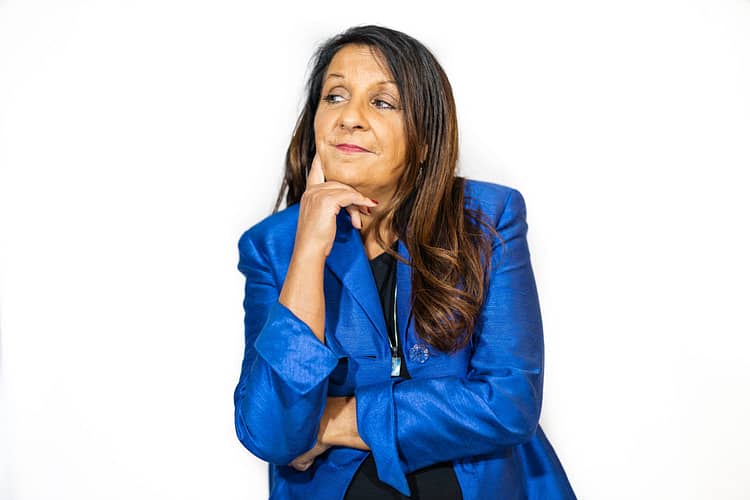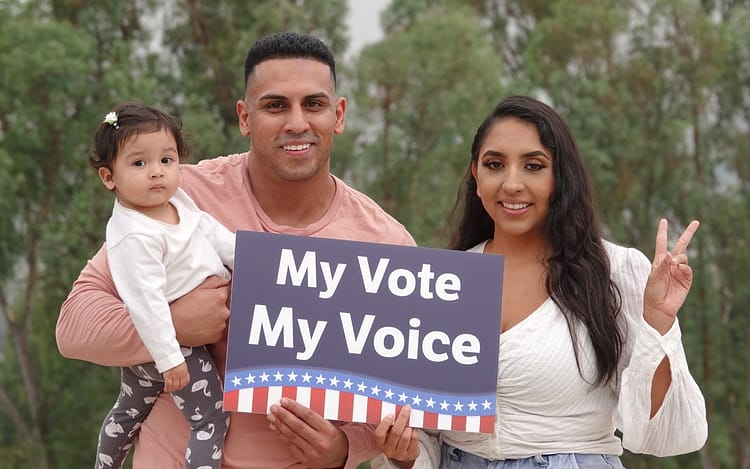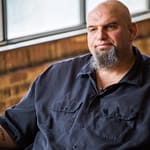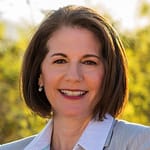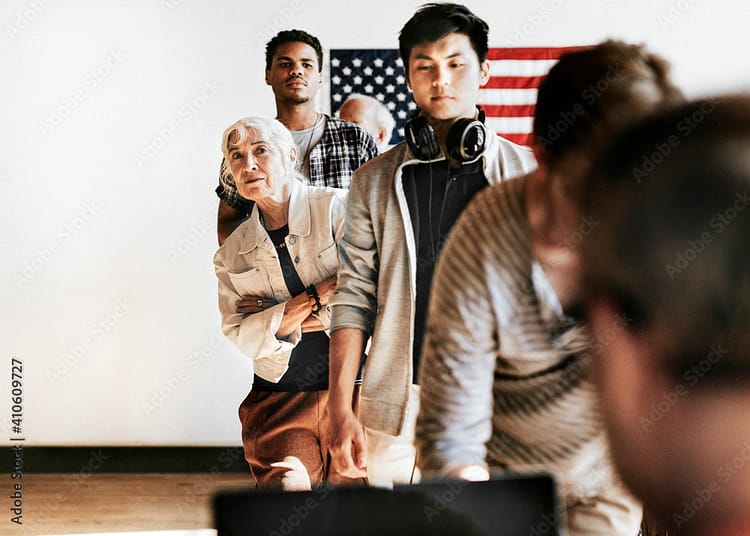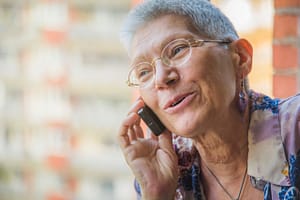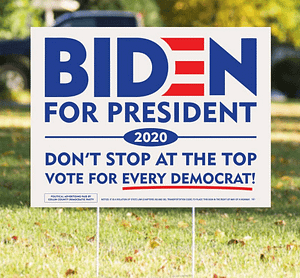Ep 11: Doctors Talk About What Happens to Women’s Healthcare Under ReTHUGliQan Abortion Bans – Part 1
Throughout our nation, so many states already have doctor shortages, and the abortion bans will simply make those shortages worse.
Here’s a Washington Post headline: A challenge for antiabortion states: doctors reluctant to work there.
No joke. But let me tell you, ReTHUGliQans fail to care.
Back in 2019, when Georgia ReTHUGliQans passed the draconian abortion law, the ACLU of Georgia’s
executive director and I, as the communications director, decided to find out how the bans would impact women’s health care. We produced a video series titled
Stop. The. Bans. American Physicians Speak Out.
You can view all of the videos at acluga.org as well as its YouTube account @ACLUofGA.
I interviewed 19 physicians from diverse disciplines across the nation: OB GYNs, cardiologists, emergency medicine physicians, family medicine, psychiatry, psychology, internal medicine, maternal fetal medicine, and oncology.
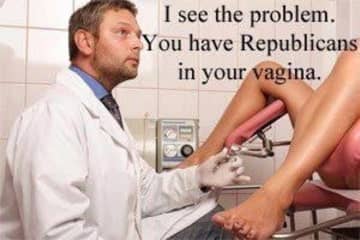
I asked each of them one simple question: what would happen to women’s health care if an abortion ban were to go into effect?
Not if an abortion ban went into effect after two minutes, two days, two weeks, two months.
Not if a woman were pregnant from this or that or the other, and not if a woman needed an abortion for this reason or that. Because, frankly, as far as I’m concerned, none of that matters.
The question was “what happens to women’s health care if an abortion ban were to go into effect?”
The things I learned. Oh, my gosh! Amazing or amazeballs, as the character Ella Lopez from Netflix’s Lucifer would say. I really love that series.
Okay, using excerpts from my interviews, I’m going to let the doctors tell the story.
First up is Dr. Jennifer, an OB GYN. She’s going to tell us the frequency with which we as women have abortions.
“So somewhere between one in four and one in three women will have an abortion at some point in her life. And when you think about those numbers, that’s one out of every four people women you know or have met on the street or in your family, your friends and your family members.
“Abortion is part of women’s reproductive lives, and to take that out of women’s
reproductive lives is really taking out a major piece of health care.
“Our job as healthcare providers is to take care of people, and this is a decision that belongs solely between a provider and a woman, because legislators and policymakers really should never be deciding what medical conditions are relevant, what medical conditions are not relevant, and what healthcare should and should not be delivered.”
Well, as we say, down in New Orleans, True Dat! And it’s a theme, this theme of government and politicians staying out of our business is one that you’ll hear throughout these interviews.
Dr. Eleanor in an OB/GYN talks about the fact that as women, we make our health care decisions, including reproductive health care decisions, within the context of our lives. Listen to what she shared with me.
“The problem with abortion bans is that women who seek these services very much have considered their situation, and they have really put their lives in the context of this pregnancy.
“Most of them have children already, and they understand what another child would add to their family structure. And they’ve made the decision that that’s not something that they’re able to do at that time.
“We know how hard it can be already even when there’s not a ban for women to get to a clinic, to take a day off work, to find child care, all of that can be really challenging, especially because most people who are having abortions don’t have resources, and that’s part of the reason why they’re having the abortion.
“If you then put a barrier where they can’t get to a clinic that’s within their state, it makes it hard for them to get to us. And they will come, but they’ll have to travel, and some of them will never get there. And that’s tragic because they’ve already thought through what is best for them.
“These bans will cause suffering, and there will be women who have judged their lives, judge their circumstances, judge what they can handle at this point in their lives, will never be able to get the abortion that they’ve judged that they need. And that’s not for the state to decide.”
Not for the state to decide, not for the government, for government bureaucrats, for politicians. None of them should make those decisions for any woman.
Dr. Elissa, an OB/GYN who provides comprehensive reproductive health care, spoke candidly about how abortion bans deprive our health care professionals with the ability of providing evidence-based medicine. Take a listen.
“I became a physician so that I could take care of patients based on evidence and facts and the life experience that they bring into the clinic with them.
“And it is the biggest pleasure to provide comprehensive care to patients.
“We are trained as obstetrician gynecologists to be able to provide the full scope of reproductive health services for women, which includes abortion.
“I came into the medical profession so that I could take care of patients based on evidence and facts and the life experience that they have.
“And these bans tie the hands of doctors who are trying to provide quality health care.”
In fact, these abortion bans tie the hands of doctors in other ways that we never really think about. Now we’re going to hear from Dr. Jody. Not only is she an OBGYN, but she also trains medical students and residents.
She told me about the devastating impact that an abortion ban will have on the education of physicians to whom you and I turn for our healthcare and the health care of our loved ones. Because as you see, the abortion bans will have a dramatic impact on the actual education of our physicians.
“After medical school, people go on to choose specialties and many specialties include reproductive health care. The most obvious are OB GYN and family medicine. But many others do interact with reproductive health care in different ways.
“So I would argue that every clinician, and certainly every doctor or nurse practitioner advanced practice clinician providing reproductive health must be able to safely empty a uterus in the setting of an emergency.
“So not only must all OB GYN and family docs and people who take care of reproductive health be able to do all the skills of counseling patients and referring them for care and seeing them before an abortion and after an abortion, they also have to be able to safely empty a uterus of a pregnancy. And this comes up all the time outside of an abortion.
“For example, a patient who is having what we call a miscarriage or an early pregnancy loss sometimes needs an emergent procedure to empty their uterus.
“So what I am very worried about is how can we make sure that these residents who are trained in family medicine or OB GYN in states with abortion bans.
“How are we going to make sure that they have the skills they need to provide emergency care for patients, for example, who are having a miscarriage and who are bleeding heavily and need to have an immediate removal of the pregnancy?
“That is something I’m very concerned about.
“And so what I could see is again not only will the patients who are cared for in these states with an abortion ban be at risk of not having the care they need and needing to travel and having delays and harmful effects of that.
“But that all of these doctors and family physicians and OBGYNs who have graduated in these states will not be able to care for all of their future patients competently.
“I actually think that the effect of these bans will be much farther reaching and go much farther beyond the states in which the bans exist and may affect people globally.”
So those states that ban abortion will likely prohibit any educational facility inside the state from teaching its students how to empty a uterus.
Wonderful.
So now we have to be careful not only inside of a state, but if our doctor, if our healthcare provider got an education where they failed to learn how to do that, we could be in big trouble.
A few years back, I was at the end of my menopause and the doctor had to go in and do a D&C. I wasn’t pregnant, but a little dusting and cleaning was necessary to take care of the continual bleeding that I was having from time to time.
In a state that fails to provide the medical education necessary to know how to do that safely, I could have ended up with a doctor … in the future, for example, you can end up with a doctor that doesn’t even know how to do that.
This is really horrifying on so many levels.
And all of this, because some folks are religious fanatics, who are unAmerican?! Because being American means that you respect everyone’s ability to practice their religion. And religious freedom means you’re free to practice your own rather than you’re free to demand everyone practice yours.
I’m going to share with you a Gloria-ism. Gloria is the name of my mother, and she had a great saying. Well, she had lots of great sayings, but here’s one of them.
Your rights end where my nose begins.
Well, this is a great place to insert that Gloria-ism.
All of us want to know that when we go to a doctor, go to any healthcare professional, that the individual in front of us is giving us real information, accurate information, and comprehensive information. For that reason, we’re going to turn to Dr. Morris. She’s an OB/GYN.
Dr. Morris is going to connect the dots between giving a woman real information and the ability of that woman to make decisions about her own health. Take a listen.
It’s important to me to be the kind of doctor that gives patients real information. And then once you know those things, then you can make your own decisions and you can decide what is right for your life and what is right for yourbody and have some agency, because that’s what’s fair.
And so, part of that is birth control and family planning and knowing what to do when you’re pregnant, and if you want to carry a pregnancy, if you can carry a pregnancy, if it’s healthy for you to carry a pregnancy, and how that then impacts the rest of your life and the rest of your family.
And so, when I think about abortion care, those are the things that I’m thinking about.
Dr. Morris also talked about how our current health care system impacts negatively communities of color. And those families who are lower income. Take a listen.
“Communities of color or lower socioeconomic status. A lot of patients don’t have super convenient access to their doctor.
So they may say, oh, I think I’m pregnant, and they’ll call for an appointment. And they’ll say, ‘Great, we’ll see you in three months.’
So that right there, they have no access to a doctor. They don’t have any opportunity to have a conversation about their options.
If it’s safe to move forward with the pregnancy. They can have new developments. They may have not even been to a doctor for five years between their last pregnancy and this one.
And of course, the impact of having little or no access to healthcare weighs most heavily on our communities of color, lower economic individuals, and, of course, immigrants.
Dr. Williams, an OB/GYN, is going to discuss our nation’s maternal mortality epidemic, especially for Black women.
“So when you think about the maternal mortality epidemic for Black women in this country, it is particularly striking to think about a lot of the places where people are pursuing these abortion bans are also places where maternal mortality is the worst, where infant mortality is the worst.
“And I don’t think that that’s an accident, because I think a lot of what we talk about when we talk about these abortion bans is really based on sort of this premise of safety, but actually kind of based in trying to control communities and control how people are able to create the lives that they want for themselves.
Dr. Williams also shared with me our government’s terrible history of controlling women of color, and specifically Black women.
“When I think about women of color, and for me personally, thinking about black women in particular, there is a very strong history of reproductive injustice, reproductive oppression in our communities.
“There, people may or may not be familiar with forced sterilizations that occur for black women, indigenous women, Latina or Latinx women throughout the last century and as recently as a few years ago. That’s been documented.
“And so it’s incredibly important, I think, for all women, all people really, to be able to make decisions about their bodies that they think are best for themselves.
“But I think I would be remiss to not really speak to how important it is for women of color to be able to have agency about their bodies, about their lives, andcreate the kind of life that they would like.”
And isn’t that exactly what all of our lives are about?
This ends episode one of the three episodes in which doctors are speaking about what happens to women’s health care under these Republican abortion bans.
Thankfully, there are things that you and I can do right now to ensure that come January, these are stories of the past.
Between now and November 8, you and I, with our friends, family and coworkers, must work in the political arena to transform the situation with women’s health care.
It really is up to you and me, and we can really do this.
I provide numerous paint-by-number ways to do just that.
Episode 2 tells you how to get your head in the game.
Episode 3 tells you step-by-step how you can use your cell phone to help identify voters who cast their ballots for our Democratic candidates.
Episode 4, that gives you a paint-by-number program to turbo-boost a campaign’s momentum through putting out local yard signs, talking with those voters at their homes, then grabbing a quick video of them promoting our Democratic candidate.
Those videos get posted to social media, and bam, no excitement on the ground.
And finally, in episode 9, I give you the paint-by-number basic instruction on walking and talking to neighbors about our Democratic candidates.
Now, you just have to find one of those actions or more and do them as often as possible. That is how we participate to create the Big Blue Wave this November.
Thank you for reading.
Be sure to follow and like, rate and subscribe wherever you follow this podcast and of course, share it with your friends and your family.
And you can find me across social media @sassypoliticalcoach.
But for your Hell Hath No Fury swag – t shirt, ball cap and of course, to start your day with your coffee mug – head on over to SassyPoliticalCoach.com.
Now go out and make Hell Hath No Fury™, our political rallying cry that helps to create the Big Blue Wave.
MUSIC
“Catch It” Music by Coma-Media from Pixabay
“Battle Percussion Jungle Powerful Show Heavy Music” Music by REDproductions from Pixabay
“Percussion Opener” Music by Stock_Studio from Pixabay
“Stomp” Music by amaksi from Pixabay
“War is Coming” Music by Musictown from Pixabay
“Percussion Energetic Sport” Music by Music_Unlimited from Pixaba

